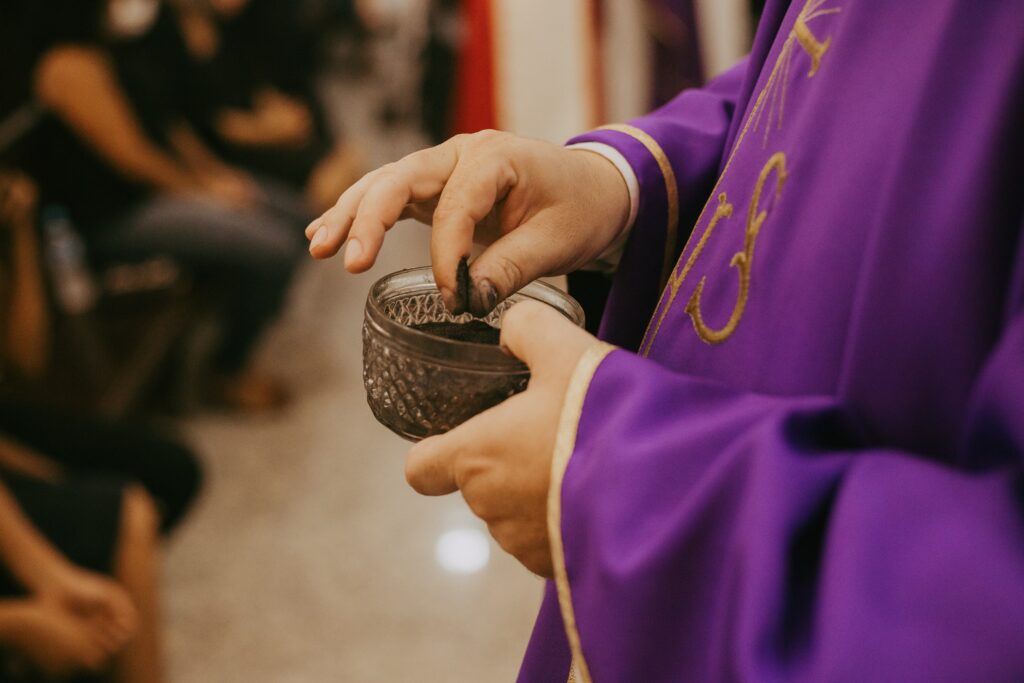Ash Wednesday
- Fr Pat Aiello, CR
- February 22, 2023
Why do Catholics receive ashes on Ash Wednesday?
The imposition of ashes signals the beginning of the great penitential season of Lent.
These ashes are made by burning the palms used on the previous year’s Palm Sunday. Branches of palms were placed on the road leading to Jerusalem by the people to honour Jesus as king.
The minister who distributes ashes to the people makes the sign of the cross with ashes in the forehead and says “Turn away from sin and believe in the gospel.” or “Remember that you are dust and unto dust you shall return.” (Genesis 3: 19)
What do ashes symbolize?
Ashes are a sign of repentance, contrition, God’s mercy and forgiveness.
Ashes are also a sign of dust. When a body decomposes it turns to dust and a substance which looks like ashes. Abraham prays to God and says “I am but dust and ashes” (Genesis 18: 27) to refer to human mortality.
On Ash Wednesday we are reminded that we will not live forever on this earth, and so we are encouraged to prepare for the love of God who calls us to live with the Holy Trinity in Heaven. As we receive ashes we silently pray for God’s mercy, love, compassion and forgiveness. We want to hear the voice of Jesus to the Good Thief on the day of crucifixion “Today you will be with me in paradise.” We ask God for the grace to live according to the values of the Gospel.
Moreover, Ash Wednesday is an opportunity to publicly express sorrow for the sins we have committed and promise to reform our lives during Lent so as to celebrate Easter victoriously.
A day of Fasting and Abstinence
The Canadian Conference of Catholic Bishops decreed that Ash Wednesday is a day of fasting and abstinence. Fasting refers to the quantity of food taken, thus we refrain from eating between meals. Generally speaking, this means two light meals and one full meal. Fasting binds Catholic adults from age 18 until age 60. Abstinence from meat is required of all Catholics from age 14. In case of health needs all Catholics can substitute special acts of charity or piety for fasting as required.



